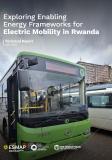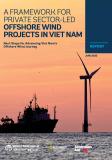Publications
Despite increasing urgency to address the climate crisis and transition away from fossil fuels, many advanced and industrializing economies continue to depend on coal. The ongoing conflict in Ukraine and volatility in global energy markets highlight the complex dynamics affecting the energy transition, but these recent developments do not change the rationale to transition away from coal.
In the past 20 years, coal-based energy production has grown rapidly, driven primarily by rising demand for electricity in developing countries. Because coal remains a major part of economies and communities, transitioning away from it presents a number of challenges.
The report explores what impedes coal phase-out in Indonesia, South Africa, and India; draws lessons from past transitions in Poland and the United States; and offers recommendations on how governments can prepare for job losses that arise from future mine closure and highlights policies to support workers through the transition period and into alternative employment.
Report | Executive Summary | Event Registration
Ruppert Bulmer, Elizabeth; Pela, Kevwe; Eberhard-Ruiz, Andreas; Montoya, Jimena. 2021. Global Perspective on Coal Jobs and Managing Labor Transition out of Coal : Key Issues and Policy Responses. Washington, DC: World Bank. © World Bank. https://openknowledge.worldbank.org/handle/10986/37118 License: CC BY 3.0 IGO.



